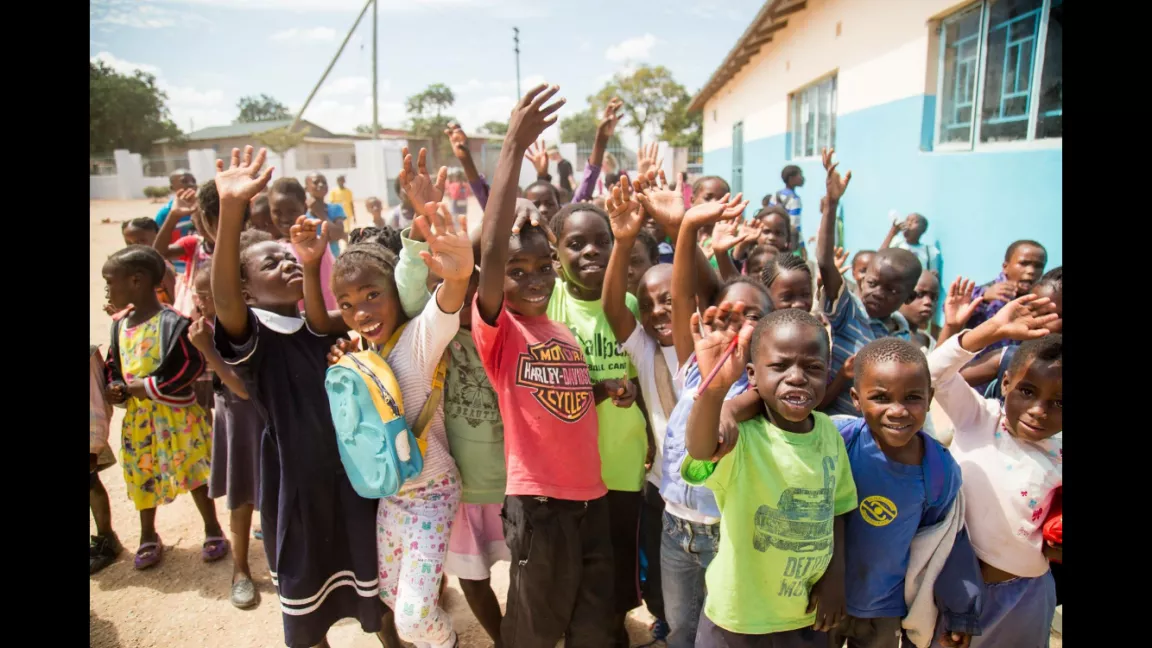African Field School Inspires Nursing Student

The days were filled listening and talking with Zambian local experts from diverse stakeholder groups that included community service provision professionals and volunteers. The stories she gathered were inspiring and heart-breaking.
For two weeks in May under the hot African sun in Zambia, Hannah Magee learned about major health issues and gained insight into analyzing health situations, and how people come together to plan, implement, and evaluate health promotion responses. This included an understanding of women and girls who experience gender-based violence and how communities are focused on reducing child marriages and teen pregnancies.
“It was so inspiring to be a part of,” said Magee, a University of Northern British Columbia fourth-year nursing student. “The amount of knowledge I gained from the experience was incredible.
“It’s the highlight of my undergraduate degree and it definitely reminded me of why I enrolled in nursing.”
Magee was part of a two-week field school in Zambia (April 30 to May 11, 2018), with a focus on health, social capital, and community sustainability.
The Zambia Field School was organized by UNBC and led by Dr. Sylvia Barton, Chair of the School of Nursing, and Dr. Gene Krupa, Adjunct Professor at the University of Alberta, and involved two UNBC students, including Magee and Emily Aase (social work) and three other health sciences students from the College of New Caledonia and the University of Alberta.
Magee and Aase participated in the field school thanks to University donors such as yourself who contributed to the Undergraduate Experiential Service Learning program.
The field school focuses on interaction with local experts, reflection, group discussion and a course project. Learners develop knowledge and skills related to interdisciplinary and intersectoral approaches to create positive, sustainable change. Barton and Krupa leverage connections with professors in the health sciences from the University of Zambia, and collaborators from NGO’s in Lusaka (capital) and Mongu (Western province).
It involved hearing stories from families and youth who live in poverty and are vulnerable to HIV and have experienced family violence and loss of a parent.
Insightful visits to community agencies, clinics, hospitals, and schools and group discussions allowed the students to reflect on their experiences and generate new ideas and possibilities to address challenges experienced in Zambia or Canada or both.
It’s those experiences that Magee, who grew up in Mackenzie B.C., is still processing and reflecting on. She submitted a documentary film as part of her final class project that details the two-week trip, visually capturing what deeply resonated with her.
“In Canada we’ve had longer to implement effective strategies to address gender-based violence but there are still challenges. In Zambia, it’s currently a focus of government attention, along with keeping young girls in school and preventing teenage pregnancy. The challenge is adapting strategies that are aligned with the Zambian cultural and social context. HIV rates are actually declining in Zambia, whereas in Canada they’ve begun to increase,” said Magee
“They are all excited for the future.”
Magee said the field school, one that she volunteered for when Barton sought UNBC health sciences students earlier this year, inspired her even further once she graduates.
She wants to pursue opportunities as a travelling nurse, working in international locations and participating in future health-science related research trips.
Nursing is a calling she’s had since she was six years old.
“Nursing will always be a part of me, one way or the other,” she said.